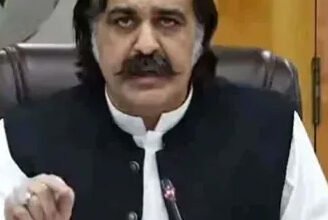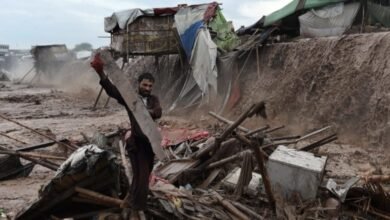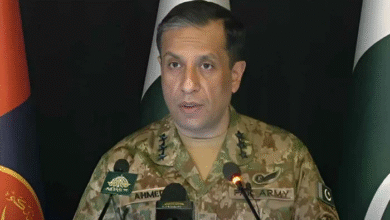KP’s Political Shift: Alliance or Ambition?”
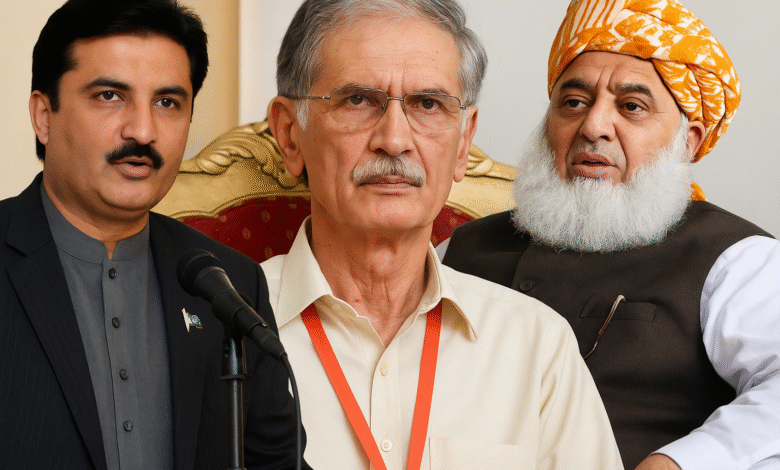
By Ghulam Haider Shaikh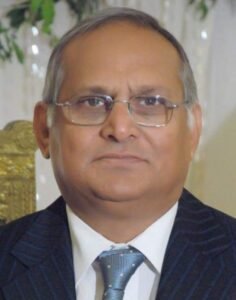
The recent consultations between key political figures—Maulana Fazlur Rehman, Pervez Khattak, and Faisal Karim Kundi—signal a potential political realignment in Khyber Pakhtunkhwa (KP) that could significantly reshape the province’s power dynamics. With discussions reportedly reaching a decisive phase,but speculation is rife about whether this alliance will translate into a concrete shift in governance or merely serve as another chapter in Pakistan’s long history of elite-driven power struggles. The political machinations in KP are not occurring in a vacuum; they are reflective of broader national trends where political pragmatism often outweighs ideological consistency, and shifting loyalties redefine the contours of power.
Khyber Pakhtunkhwa, historically seen as a province with volatile political currents, has often served as a testing ground for national-level political experiments. Over the past decade, the dominance of Pakistan Tehreek-e-Insaf (PTI) under Imran Khan transformed KP’s political landscape, introducing an era where a single party held sway across urban and rural constituencies alike. However, the recent political developments suggest that PTI’s once unassailable hold is beginning to weaken in the face of sustained legal challenges to its leadership, internal fissures, and the emergence of alternative power centers.
The involvement of Maulana Fazlur Rehman is particularly notable. As the head of Jamiat Ulema-e-Islam (Fazl), he wields considerable influence in KP’s southern districts and among religious constituencies. His political acumen, honed over decades of maneuvering within Pakistan’s complex political matrix, positions him as a key architect of any prospective alliance. Fazlur Rehman’s ability to mobilize street power through his party’s disciplined cadre adds a critical dimension to this realignment. However, critics argue that his politics has often leaned more towards expediency than principle, raising questions about the durability of such arrangements.
Pervez Khattak’s role cannot be understated either. Once a close ally of Imran Khan and a former Chief Minister of KP, Khattak’s estrangement from PTI marked a significant rupture within the party’s provincial power base. His newly formed political entity, Pakistan Tehreek-e-Insaf Parliamentarians (PTIP), has yet to demonstrate electoral strength, but his personal influence in key constituencies and administrative experience make him a valuable partner in any coalition seeking to challenge PTI’s dominance.
Faisal Karim Kundi, representing Pakistan Peoples Party (PPP), brings a different set of strengths to the table. The PPP, while historically weaker in KP compared to other provinces, has sought to regain relevance through targeted alliances and a focus on governance issues. Kundi’s involvement suggests an attempt to broaden the alliance’s appeal beyond traditional voter bases and create a coalition capable of transcending ethnic and ideological divides.
The real question, however, is whether this emerging alliance has a coherent vision for governance or if it is primarily a marriage of convenience aimed at dislodging PTI. Political history in Pakistan is littered with examples of alliances forged out of mutual antipathy towards a dominant player, only to collapse under the weight of conflicting interests once in power. The Pakistan Democratic Movement (PDM) experience at the national level is a recent reminder of how divergent agendas can erode the effectiveness of such coalitions.
The implications of this potential political shift are far-reaching. For KP, a change in government could bring new priorities, policies, and administrative styles. It could also impact the province’s relationship with the center, particularly if the new provincial leadership aligns closely with the federal government. This alignment might ease fiscal flows and development funding but could also breed accusations of favoritism and undermine the perception of provincial autonomy.
At the same time, the political reconfiguration in KP risks alienating segments of the population who supported PTI’s anti-status quo narrative. PTI’s supporters often view alliances among traditional political elites as evidence of the old guard’s desperation to regain lost ground. This perception, if left unaddressed, could deepen political polarization in the province, complicating governance for any incoming coalition.
Moreover, the focus on elite consultations and power sharing does little to address KP’s pressing challenges. The province faces mounting security threats, economic underdevelopment, and governance deficits. Any new government will have to confront these issues head-on to maintain legitimacy. Simply replacing one set of political actors with another will not suffice unless accompanied by a genuine commitment to institutional strengthening and public service delivery.
The involvement of multiple political actors with varying ideological leanings also raises questions about policy coherence. Can an alliance comprising religious conservatives, centrist technocrats, and left-leaning progressives develop a unified agenda that addresses KP’s socio-economic needs? Or will policy paralysis and internal squabbles derail governance? The answers to these questions will determine whether the proposed political realignment brings stability or further chaos.
Nationally, the developments in KP could influence the broader political climate. If successful, the alliance could embolden similar coalitions in other provinces and weaken PTI’s narrative of invincibility. Conversely, if the alliance fails to gain traction or collapses prematurely, it could reinvigorate PTI’s support base and reinforce the party’s claims of being the only credible alternative to the status quo.
For now, all eyes are on the outcome of these “decisive consultations.” Pakistan’s political culture, often criticized for being personality-driven and transactional, faces another test in KP. The people of the province deserve a government that prioritizes their welfare over political intrigue, one that can rise above the narrow calculus of power sharing to deliver meaningful change. Whether this new alignment can rise to that challenge remains to be seen.
The coming weeks will be crucial. As the political elite negotiates power corridors, the province waits anxiously to see whether this will usher in a new era of stability or simply perpetuate the cycles of political maneuvering that have long defined KP’s governance.

